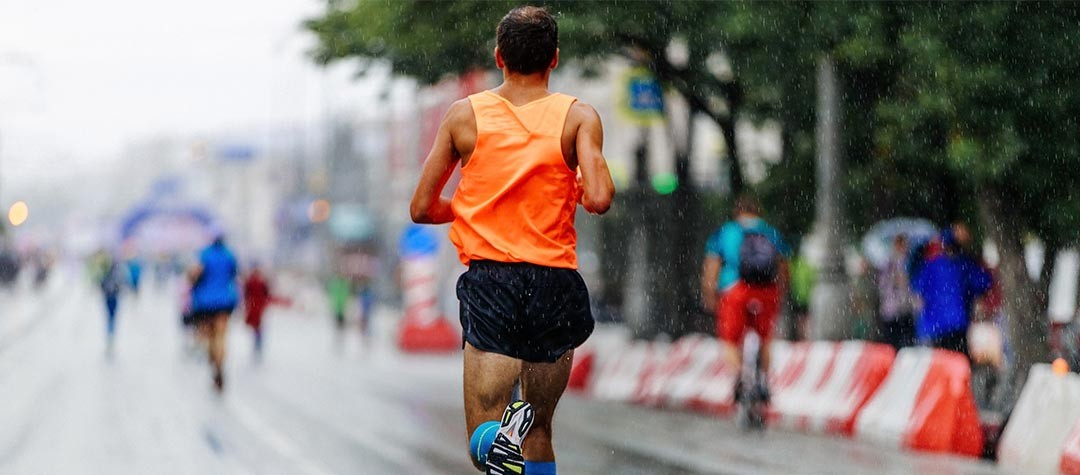All runners make mistakes at some point. Here are five common running mistakes many runners typically get wrong, especially in the early days, plus some solutions to help get it right.
1. Not knowing your runner type
Everyone has a reason for running and what they want to get out of it, but without knowing what type of runner you really are means that you won’t know how you should properly train and what goal you should realistically set.
How to fix it: To identify the type of runner you are look at the types below and pick out the runner description that best suits you. Once you’ve identified a runner you relate to you will be able to tailor your sessions to suit you.
- The competitor: You constantly look to beat your PB and are obsessed with your times. If you meet another runner the first thing you ask them is how fast they can run a 5k.
- The health-conscious runner: You run to for the benefit of your health and enter events in order to keep you motivated. You take notice of your running times, but don’t overly about it. Keeping your body in good condition is your main aim.
- The running lover: You run because for the love it it and the freedom it gives you. You don’t generally record your times and don’t really have an interest in competing.
2. Putting in a sprint finish
Putting in a crazy sprint towards the end of your run may leave you with the impression that you’ve given your all in your session, yet it’s not the ideal way to finish your session. At the tail end of your run your muscles will be fatigued, so putting in an extra hard burst could increase your chances of an injury.
How to fix it: The simple answer is don’t sprint at the very end of a session. If you want to put your legs to the test, then include your speed portion earlier in your session, rather than tagging it at the end. Ideally your sessions should end with a slow jog warm down rather than a eyeballs out sprint.
3. Not the right racing weight
Many people start out with the intention of losing weight , but once they start to take the running seriously they may start to look at weight in performance terms. Carry too much excess weight and and this will negatively affect performance, but equally losing too much weight can lead to loss of strength and good health, which again can negatively affect running performance.
How to fix it: Bob and Shelly Glover, authors of The Competitive Runner’s Handbook, suggest a formula that can help runners work out their optimum running weight:
- Men: For men the suggestion is that you measure your height in inches and double that figure, before adding 10 per cent.
- Women: For women they suggest an ideal weight of around 120lbs (54kg) for a runner who is 5 foot six inches tall. For every inch above this height, the suggestion is to add 3lbs (1.3kg) and for every inch less than this height subtract 3lbs.
Remember though that these figures are suggestions and only ever intended for the very serious runner. The authors of The Competitive Runner’s Handbook also suggest that there is some leeway within these weights of around 10 to 15lbs (4.5 to 6.5kg).
4. Poor running posture
Every runner has a running style, whether good or bad. Good posture can make you a smooth efficient runner, whereas bad running posture can slow you down and make you a less efficient runner with greater potential for injury.
How to fix it: Good posture usually has to be worked on and doesn’t generally happen naturally. Here are a few tips to ensure that you are not running incorrectly and are as efficient as you can possibly be:
- Carry out a few shoulder shrugs to release tension in the shoulders. When running ensure your shoulders are level and not too tight.
- Keep your arms and legs moving in straight lines and don’t twist or run from side to side. To keep good form imagine that you are holding onto two straight, taut ropes when running.
- Run tall with your shoulders back and with a straight spine. Keep your chin level with the floor.
5. Not fuelling correctly
It’s all well and good training well, but what about fuelling your runs well? A constant supply of takeaway food isn’t going to provide you with the necessary fuel for your runs, so ensure you fuel with the right foods.
How to fix it: Include some of the following foods in your diet and see if the running improvements follow:
- Salmon: Salmon’s high levels of protein and Omega 3 fatty acids means that it’s great for your heart and your lungs and also recovery.
- Oatmeal porridge: Porridge supplies a good mix of protein, fibre and slow-release energy to sustain you, particularly on the long runs.
- Sweet potatoes: Sweet potatoes are full of carbs to boost your glycogen levels and ensure you don’t get a massive energy dip during your run.















